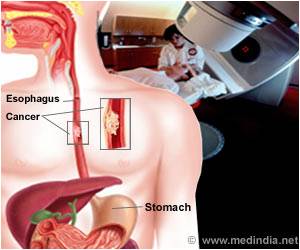A new study from the University of Pittsburgh, USA, shows, for the first time, how exercise improves cancer outcomes and enhances the response to...
Vous n'êtes pas connecté
 - ONCOLOGYNEWS.COM.AU - A La Une - 30/Jul 17:27
- ONCOLOGYNEWS.COM.AU - A La Une - 30/Jul 17:27
Gut microbes key to understanding how exercise boosts cancer immunity
A new study from the University of Pittsburgh, USA, shows, for the first time, how exercise improves cancer outcomes and enhances the response to immunotherapy in mice by reshaping the gut microbiome. The research, published today in the journal Cell, found that these benefits are driven by a specific compound called formate, which is produced by gut bacteria in exercised mice and was also associated with better outcomes in patients with melanoma. “We already knew that [...]
Articles similaires
Artificial Sweetener Sucralose May Hinder Effectiveness of Cancer Immunotherapy, Study Reveals
Pittsburgh: A new study has found that patients with melanoma and non-small cell lung cancer who consumed high levels of sucralose-a widely used...
Harnessing the power of gut bacteria to enhance cancer immunotherapy effectiveness
A comprehensive new review reveals both the promise and challenges of using fecal microbiota transplantation (FMT) to enhance cancer immunotherapy...
Harnessing the power of gut bacteria to enhance cancer immunotherapy effectiveness
A comprehensive new review reveals both the promise and challenges of using fecal microbiota transplantation (FMT) to enhance cancer immunotherapy...
Artificial sweetener undermines effectiveness of cancer treatment, researchers say
<p> (UrduPoint / Pakistan Point News / WAM - 01st Aug, 2025) PENNSYLVANIA, 1st August, 2025 (WAM) – A new study has found that patients with...
Artificial sweetener undermines effectiveness of cancer treatment, researchers say
<p> (UrduPoint / Pakistan Point News / WAM - 01st Aug, 2025) PENNSYLVANIA, 1st August, 2025 (WAM) – A new study has found that patients with...
Cancer-fighting gut bacteria that can absorb forever chemicals in the body discovered by scientists from Cambridge University
Scientists at the University of Cambridge have identified gut bacteria strains capable of removing harmful PFAS "forever chemicals" from the body. The...
Cancer-fighting gut bacteria that can absorb forever chemicals in the body discovered by scientists from Cambridge University
Scientists at the University of Cambridge have identified gut bacteria strains capable of removing harmful PFAS "forever chemicals" from the body. The...
Microbial therapy uses modified bacteria to target oxalate in the gut
Engineered gut bacteria designed to treat kidney stones successfully colonized the gut microbiome and reduced oxalate levels in animal models and...
The Microbial Plot Behind Esophageal Cancer's Immune Evasion
Discover how gut and oral bacteria influence immune evasion in esophageal cancer, impacting treatment response and disease progression.
Les derniers communiqués
-
Evergreen Elevate Heads to Australia to Empower MSPs with Valuable Strategies and Insights on Better M&A Practices
Evergreen Elevate - 29/07/2025



